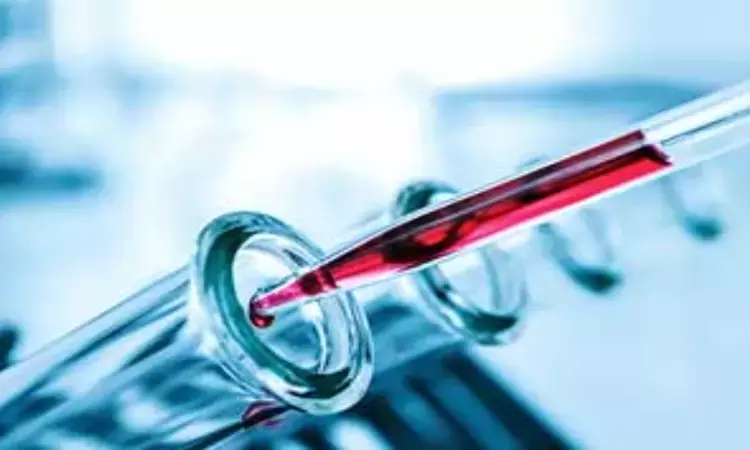- Home
- Medical news & Guidelines
- Anesthesiology
- Cardiology and CTVS
- Critical Care
- Dentistry
- Dermatology
- Diabetes and Endocrinology
- ENT
- Gastroenterology
- Medicine
- Nephrology
- Neurology
- Obstretics-Gynaecology
- Oncology
- Ophthalmology
- Orthopaedics
- Pediatrics-Neonatology
- Psychiatry
- Pulmonology
- Radiology
- Surgery
- Urology
- Laboratory Medicine
- Diet
- Nursing
- Paramedical
- Physiotherapy
- Health news
- Fact Check
- Bone Health Fact Check
- Brain Health Fact Check
- Cancer Related Fact Check
- Child Care Fact Check
- Dental and oral health fact check
- Diabetes and metabolic health fact check
- Diet and Nutrition Fact Check
- Eye and ENT Care Fact Check
- Fitness fact check
- Gut health fact check
- Heart health fact check
- Kidney health fact check
- Medical education fact check
- Men's health fact check
- Respiratory fact check
- Skin and hair care fact check
- Vaccine and Immunization fact check
- Women's health fact check
- AYUSH
- State News
- Andaman and Nicobar Islands
- Andhra Pradesh
- Arunachal Pradesh
- Assam
- Bihar
- Chandigarh
- Chattisgarh
- Dadra and Nagar Haveli
- Daman and Diu
- Delhi
- Goa
- Gujarat
- Haryana
- Himachal Pradesh
- Jammu & Kashmir
- Jharkhand
- Karnataka
- Kerala
- Ladakh
- Lakshadweep
- Madhya Pradesh
- Maharashtra
- Manipur
- Meghalaya
- Mizoram
- Nagaland
- Odisha
- Puducherry
- Punjab
- Rajasthan
- Sikkim
- Tamil Nadu
- Telangana
- Tripura
- Uttar Pradesh
- Uttrakhand
- West Bengal
- Medical Education
- Industry
Accurate cancer diagnosis possible with just a drop of blood

Liquid biopsy, which detects tumor DNAs in the blood, is not only more convenient than the biopsy that requires collection of patients' tissues, but is attracting much attention since the blood contains tumor DNAs in presence of any cancer in the body, whereas the tissue collection frequently misses cancerous cells.
Currently, polymerase chain reaction (PCR) is widely employed to detect a small number of mutated genes. However, there is a strong need to improve the reliability of the conventional method since its sensitivity and specificity are compromised especially at low pconcentrations.
A research team led by Professor Joon Won Park at POSTECH's Department of Chemistry in collaboration with Seoul National University College of Medicine and Seoul St. Mary's Hospital has shown that the use of an atomic force microscope overcomes such shortcomings.
The liquid biopsy method developed by the researchers demonstrates sensitivity high enough to detect even one to three specific tumor DNAs in the blood while showing specificity close to 100%.
Professor Park's team has worked with professors Yonggoo Kim and Myungshin Kim (Department of Laboratory Medicine at Seoul St. Mary's Hospital) to demonstrate that such approach is effective for samples from cancer patients, and POSTECH-CATHOLIC Biomedical Engineering Institute – jointly established by POSTECH and Catholic University in 2005 – has supported such collaboration strongly. Their joint study was recently published in a prestigious journal, Nano Letters.
"The ultimate goal is relieving mankind from the threat of cancers with the current method," explained Professor Joon Won Park. "Because the technique is highly extensible, it is possible also to detect biomarkers of dementia with the highest sensitivity".
The study was supported by the National Research Foundation of Korea. The newly developed liquid biopsy will soon go to market through NB Postech Inc., a venture company specializing in medical diagnosis. As the first step, a reference laboratory will be launched at Seoul St. Mary's Hospital, and clinical trials for research and FDA approval are scheduled at the site.
Hina Zahid Joined Medical Dialogue in 2017 with a passion to work as a Reporter. She coordinates with various national and international journals and association and covers all the stories related to Medical guidelines, Medical Journals, rare medical surgeries as well as all the updates in the medical field. Email: editorial@medicaldialogues.in. Contact no. 011-43720751
Dr Kamal Kant Kohli-MBBS, DTCD- a chest specialist with more than 30 years of practice and a flair for writing clinical articles, Dr Kamal Kant Kohli joined Medical Dialogues as a Chief Editor of Medical News. Besides writing articles, as an editor, he proofreads and verifies all the medical content published on Medical Dialogues including those coming from journals, studies,medical conferences,guidelines etc. Email: drkohli@medicaldialogues.in. Contact no. 011-43720751


